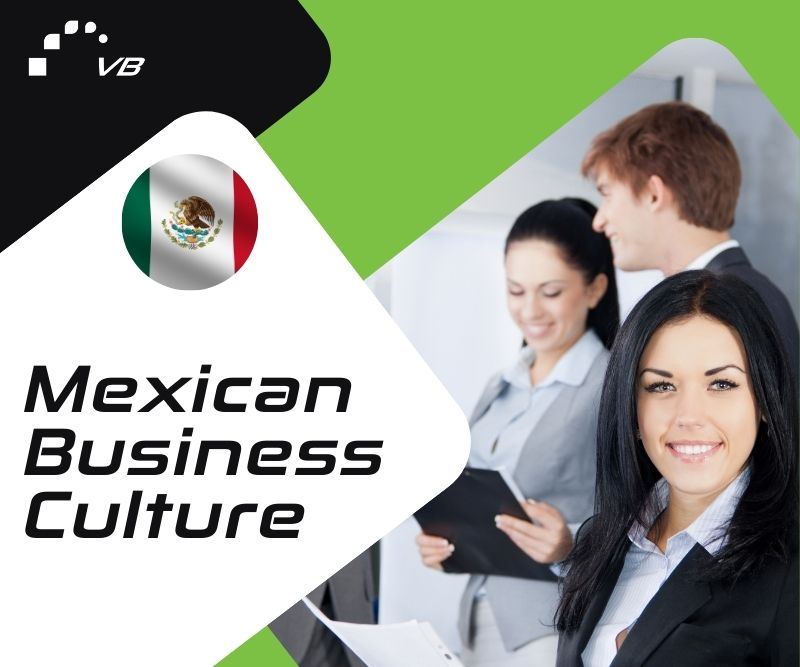
Mexico is an emerging market mainly due to its proximity to the United States. In addition, there are strong trade ties between the two countries, which is shaping the frequent interaction of Mexico within the business world (Hyatt, 2016). Thus, it is essential to understand Mexican business culture. The main characteristics of Mexican business culture are personal relationships, strong hierarchy, respect, and loyalty. Below are a few tips that will help you immerse yourself in the Mexican business culture to ensure effective business communication:
1. It’s All Personal
Mexico is a country that prides itself on strong family ties and interpersonal relationships, which is also reflected in Mexican business culture (Hyatt, 2016). Similarly, it is common in Mexican businesses for business and personal connections to be mixed. For example, being invited to a colleague’s home or for a weekend gathering. The context of forming personal relationships is necessary for communication, as trusting relationships need to take place before any business arrangements happen. Thus, a key element of business culture is that Mexico is a high-context culture (Hyatt, 2016), meaning that connections are developed over years of interactions that establish mutual understanding. Therefore, if you find yourself working with a Mexican company, you should be prepared to spend time establishing relationships and gaining trust.
In this sense, communication is less formal and less explicit. Long-term face-to-face relationships strongly emphasize decision-making. Similarly, this does not mean you need to be direct, as phrases like “Sign this paper, or we will not continue our business” can be taken as very aggressive, rude, and insulting. Why? Because the process of building the relationship is what matters the most, which can take time, therefore you must be patient. For instance, confirming the date and appointment is essential if you’re making appointments, as it shows interest in making the connection. It is also advised to make several reminders regarding the meeting, which shows eagerness. When face-to-face meetings are unavailable, Mexican business people prefer to speak over the phone rather than by email, as it is more personal.
Additionally, when arranging meetings, be mindful of the setting you choose for your meeting to take place. Engagements should reflect one’s position and status. Hence, meeting high-level Mexican businessmen should take place outside the office. High-end restaurants or cafés are considered most appropriate for these meetings to occur.
It is OK if the alcohol is free-flowing at a lunch or dinner meeting, even if it is for business. It is advised to follow your Mexican counterpart on this. Additionally, the party that made the invitation is expected to pay the bill. In any case, if you are the client and have been invited, it is polite to offer to pay. It is never advised to split the bill, as it is not considered welcoming or warm grounds to establish a personal relationship.
2. Take Your Time
As mentioned above, business culture in Mexico is all about establishing relationships, which also means this is going to take some time. Except for multiple long lunches where little business will be talked about (Hyatt, 2016). Negotiating a deal will take numerous meetings in which the negotiation will take a few minutes as opposed to the actual process of establishing the relationship in order to seal the deal.
Time is flexible and plentiful, and therefore there is no rush in Mexican business culture. Mexicans prefer an authentic “let’s get to know each other” rather than a formal conversation that will feel disingenuous and fake. How long this will take to go into the realm of trust does not matter. Similarly, as time is plentiful and flexible, do expect your Mexican clients to be late. Anywhere between the ten to the 30-minute marker is considered fashionably and acceptably late. However, even though Mexicans may be looser on time, this doesn’t mean you shouldn’t arrive on time for a meeting. Expect that small talk will take a significant amount of time, and even if you have a proposed agenda for the meeting, it is just a rough guideline. Strict emphasis on following it to a tee should not be a priority. Topics for small talk may vary, but considering that most Mexicans are Roman Catholic, they avoid controversial topics such as politics and religion. Interest in discussing Mexican culture and showing interest in Mexico generally is a very safe topic.
3. Titles Do Matter
When meeting Mexican business people, regardless of sex, a regular handshake will suffice as an appropriate greeting. The handshake itself should be gentle, and it can be combined with a light touch on the forearm. When a relationship is developed with business associates, a kiss on the cheek is acceptable, or even a hug is typical between close male associates (West, 2010). Mexican businessmen can be very warm and friendly and make physical contact once the relationship has been established.
In the United States, it is common practice to address someone by their first name within minutes of meeting them. In Mexico, it is important to address business partners directly by their professional title, Mr., Mrs, Miss, or Dr., accompanied by their surname, as although greetings can be warm, the respect of the person’s title is kept very formal in Mexico, and would not be pleased to be addressed casually (West, 2010). In Mexico, people have three names, their first name, their mother’s last name, and their father’s last name. You will only use the father’s last name. Titles are a prominent status symbol in Mexico, and it is up to them to tell you when you can address them by their first name.
4. Gifting
On the first business meeting, a simple gift may be exchanged. Although gift exchange is not a requirement, it is considered a good gesture. For example, if you are invited to a dinner by your Mexican colleagues, it is considered appropriate to bring chocolate, cake, or wine. In addition, it is common to exchange thank-you gifts with highly-ranked Mexican people. Gifts do not need to be expensive but should reflect something about your culture or business, such as something that incorporates your company’s logo.
5. Know the language
Most Mexican businesspersons will speak a little business English. However, it is not safe to assume all Mexicans speak fluent English, even though it is widely spoken. For this reason, it is always best to check in advance that translators may be optional. Additionally, the business language in Mexico is Spanish (Stevens et al., 2012). Knowing some basic Spanish phrases will go a long way to help you effectively communicate with business persons and show your eagerness to make connections. If you’d like to know about the differences between Mexican Spanish and Spain Spanish, we have a blog post about it, which is here (link to our blog post).
You must remember that Mexicans may invert Mexican phrases in English, which are not difficult to understand as the meaning communicated is easy to understand, but you must be a careful listener. Besides, “yes” may not always mean “yes” in Mexico, and “no” doesn’t always mean “no.” Mostly, remember that in Mexican business circles, “yes” can mean “no,” and “no” can potentially mean maybe. But also, the word ‘no’ is frequently used at the end of a sentence, seemingly turning every statement into a question like “isn’t it?”. Many statements are not questions and can be identified as such by common body language. You need to read the room.
Mexicans may occasionally ask a question that seems to degrade something of value to them. Although, for instance, they might say, “Isn’t this place quite dirty?” the correct response is definitely not, “It sure is filthy!”. Instead, one should respond oppositely with, “I disagree; I find this city rather nice.”
Furthermore, open signs of emotions are quite common and can be seen as an active engagement instead of a loss of control. For example, if a Mexican business person is emotional, this is a good sign of interest and commitment.
6. Dress to Impress
Appearance matters within Mexican culture, but also in Mexican business culture (Stevens et al., 2012). Your Mexican counterpart will be observant of how you have dressed and accessorized. Therefore, you will need to suit up and avoid jeans, low-cut tops, t-shirts, and tight outfits. In every instance, it is better to be overdressed than underdressed.
Overall, we can conclude that when it comes to Mexican business culture fostering relationships, showing respect, and remaining hospitable are necessary. Be engaged in Mexican culture, as it is important to your Mexican business counterparts. Knowing some Spanish and showing respect via your engagements, giving, and the way you present yourself will dictate how successful you communicate with Mexican business persons will be. Following these tips above will aid your interactions with the world of Mexican business.
SPEAK BUILD CONTRIBUTE
Used sources:
Business practices in Mexico – Santandertrade.com. (2022). Santander Trade. https://santandertrade.com/en/portal/establish-overseas/mexico/business-practices
Hyatt, J. T. (2016). Mexican business culture: Essays on tradition, ethics, entrepreneurship and commerce and the state. McFarland.
Stevens, R. E., Loudon, D. L., Gordon, G., & Williams, T. (2012). Doing business in Mexico: A practical guide. Routledge.
West, C. (2010). Lowdown: Doing business in Mexico. Creative Learning Concepts.
New Year Traditions in the USA, Germany, and Mexico
Many of us are looking forward to the New Year.
Christmas Traditions in America USA, Germany, and Mexico
The traditions vary from country to country. Different cultures adapt
JOIN THE FOUNDING MEMBERS LIST
Getting fluent in any language is not impossible. Still, it






